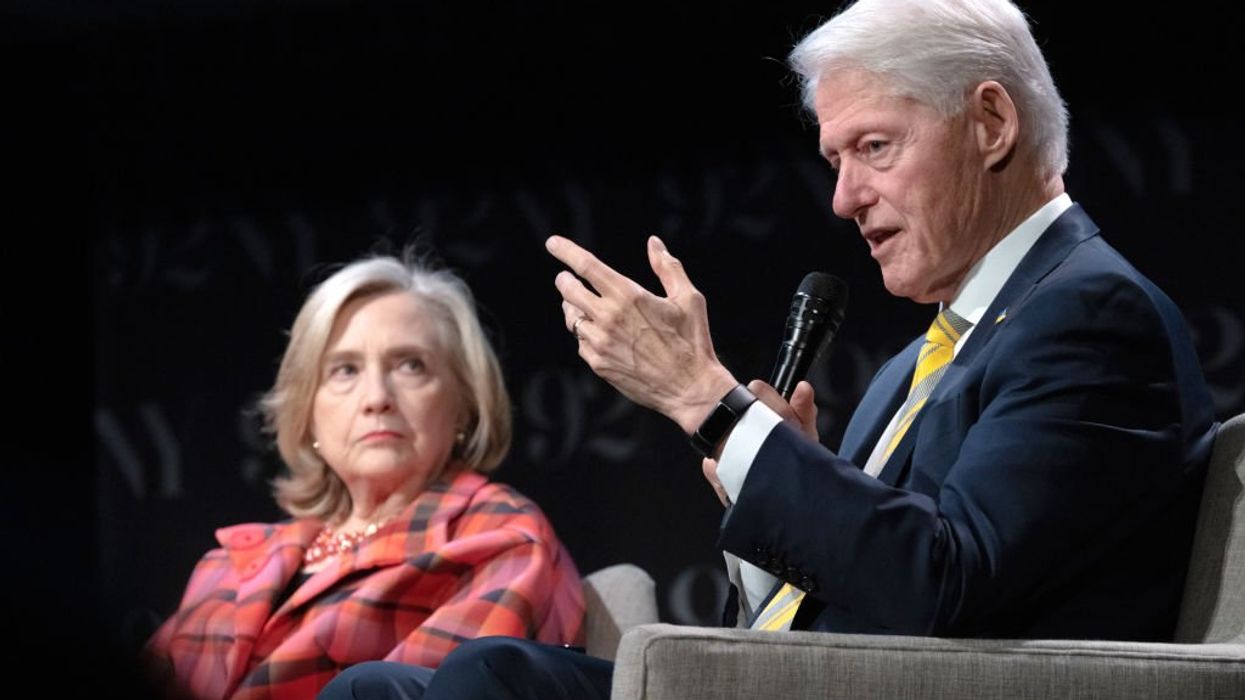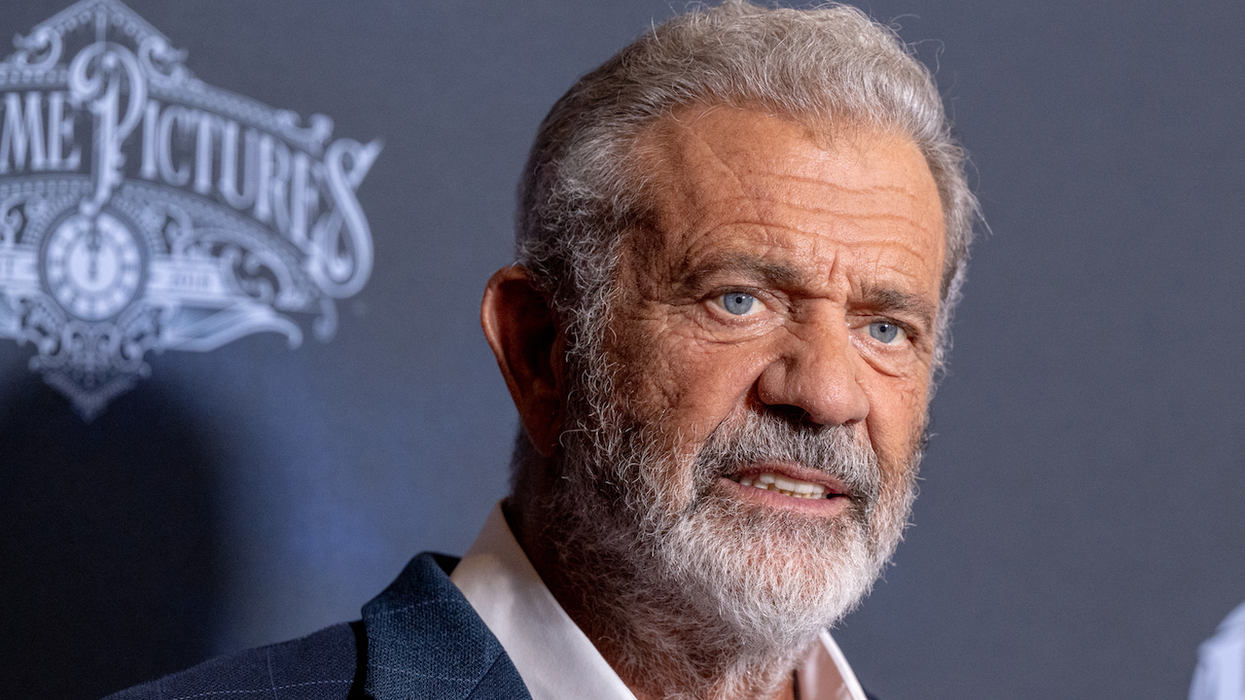
© 2024 Blaze Media LLC. All rights reserved.

Israel’s diplomatic and military correspondents got quite the surprise watching the live feed of the Senate Intelligence Committee when Chairman Dianne Feinstein (D-Calif.) revealed the head of the Mossad had made a secret visit to Washington earlier this week to hold talks with senior U.S. officials.
The item led the “Mabat” main newscast on Israel’s government-run network IBA on Tuesday evening and was the headline on Ha’aretz newspaper’s website.
The travels of Mossad Director Tamir Pardo are usually kept secret and in fact, the name of the head of the Mossad and Shin Bet [Israel’s version of the FBI] were up until a few years ago kept secret from the public.
Ha’aretz reports:
The clandestine Washington visit was exposed during a hearing of the Senate Select Committee on Intelligence, which was participated by CIA Director David Petraeus, Director of National Intelligence James Clapper, and Dianne Feinstein, who chairs the Senate panel.During the meeting, Feinstein asked Clapper whether or not Israel intended to strike Iran's nuclear facilities, with the top U.S. intelligence official answering that he would rather discuss the issue behind closed doors.
Feinstein then indicated that she had met Mossad chief Pardo earlier in the week in Washington, with Petraeus adding that he too met Pardo and cited what he called Israel's growing concern over Iran's nuclear ambitions.
The CIA chief also said that it was important to note that Israel considered a nuclear Iran as an existential threat.
In Sen. Feinstein’s defense, the travels of the head of the CIA to close allies is not as closely guarded, and she might not have known Israel’s modus operandi on the matter. On the other hand, as head of the Intelligence Committee, the senior Senator from California might have considered that with tensions running so high, some meetings are best held close to the vest. The question also remains: why did CIA Director Petraeus also publicly confirm the meetings?
He called it “part of an ongoing dialogue.”
The entire exchange can be seen here on C-SPAN – Feinstein makes the Mossad comment at 34:30.
Reflecting the heightened tensions, Israeli President Shimon Peres said Tuesday Iran’s “evil” leaders must not be allowed to get nuclear weapons, and he called Iran’s nuclear program the world’s “central problem.” Peres’ remarks opened the prestigious Herzliya Conference. Ha’aretz reported:
"Nuclear weapons mustn't be allowed to fall into the hands of Iran's Ayatollah regime," Peres said, calling Iran's religious leadership the "most morally corrupt regime in the world."Hinting at the possibility of a strike against Iran's nuclear facilities, the president reiterated the Israeli stance, according to which "no option should be ruled out in our dealing with the Iranian danger. This is an existential threat."
"It is the duty of the international community to prevent evil and nuclear [weapons] from coming together. That is the obligations of most of the leaders of the free world, one which they must meet," Peres said.
On what he called "the moral significance of this battle," the president spoke of an Iranian regime which "executes people for their views. It funds, trains, and guides terrorists to spread terror and murder across the globe."
The AP reports that Israeli officials believe if a military strike on Iran’s nuclear installations is going to be effective, it must take place by this summer, due to Iran moving facilities underground.
Additionally, over the weekend, veteran Israeli intelligence reporter Ronen Bergman wrote in the New York Times Magazine that he agrees this year is key:
“After speaking with many senior Israeli leaders and chiefs of the military and the intelligence, I have come to believe that Israel will indeed strike Iran in 2012. Perhaps in the small and ever-diminishing window that is left, the United States will choose to intervene after all, but here, from the Israeli perspective, there is not much hope for that. Instead there is that peculiar Israeli mixture of fear — rooted in the sense that Israel is dependent on the tacit support of other nations to survive — and tenacity, the fierce conviction, right or wrong, that only the Israelis can ultimately defend themselves.”
Clapper told the Senate panel he believes Iran has advanced technically on uranium enrichment and that its political decision on if to construct a nuclear device is the central issue:
"These advancements contribute to our judgment that Iran is technically capable of producing enough highly enriched uranium for a weapon, if it so chooses," Clapper added, saying that the U.S. judged "Iran would likely choose missile delivery as its preferred method of delivering a nuclear weapon."
See Buck Sexton’s coverage of the hearing here, including what the Iranians might have in mind for the U.S.
Want to leave a tip?
We answer to you. Help keep our content free of advertisers and big tech censorship by leaving a tip today.
Want to join the conversation?
Already a subscriber?
more stories
Sign up for the Blaze newsletter
By signing up, you agree to our Privacy Policy and Terms of Use, and agree to receive content that may sometimes include advertisements. You may opt out at any time.
© 2024 Blaze Media LLC. All rights reserved.
Get the stories that matter most delivered directly to your inbox.
By signing up, you agree to our Privacy Policy and Terms of Use, and agree to receive content that may sometimes include advertisements. You may opt out at any time.


